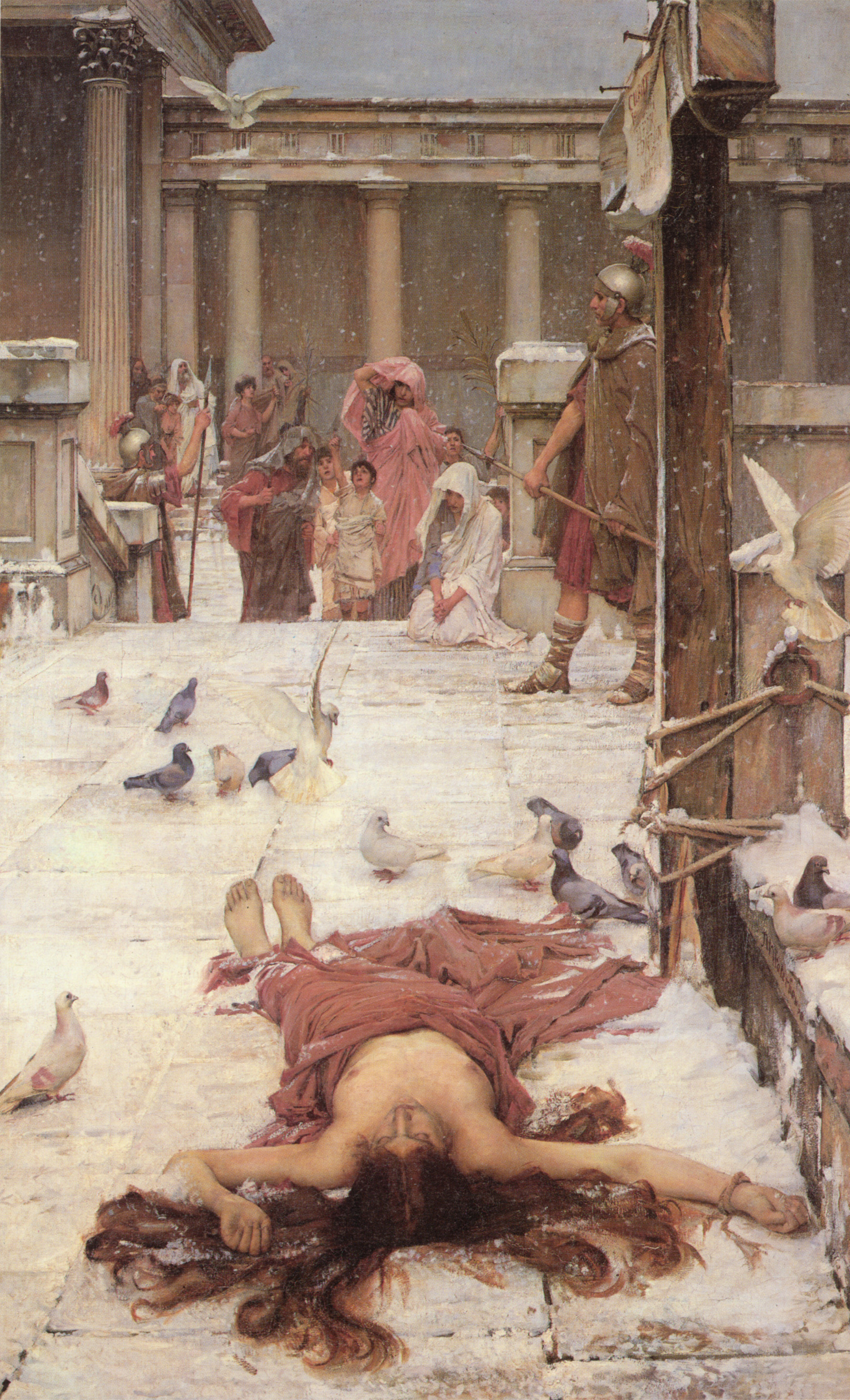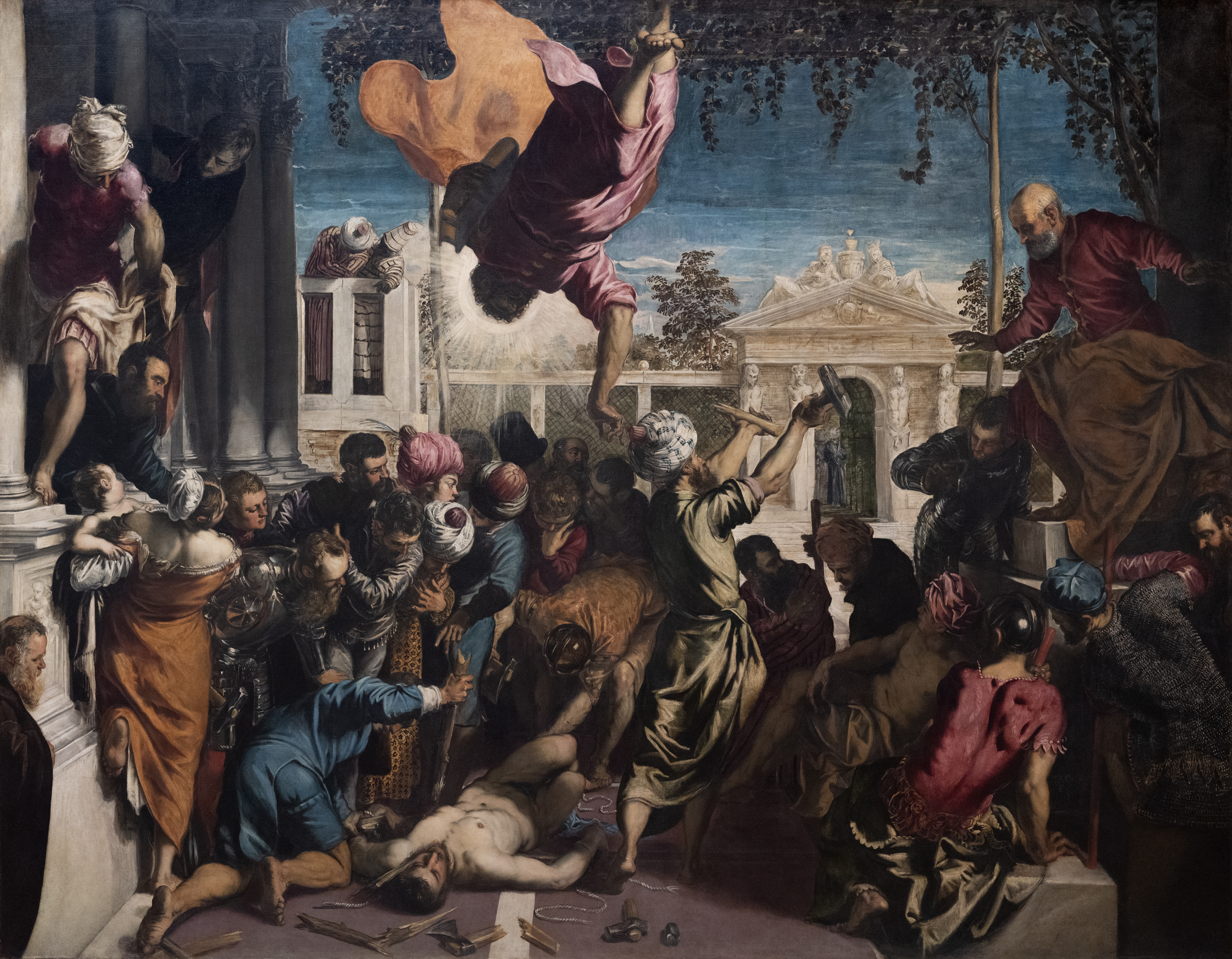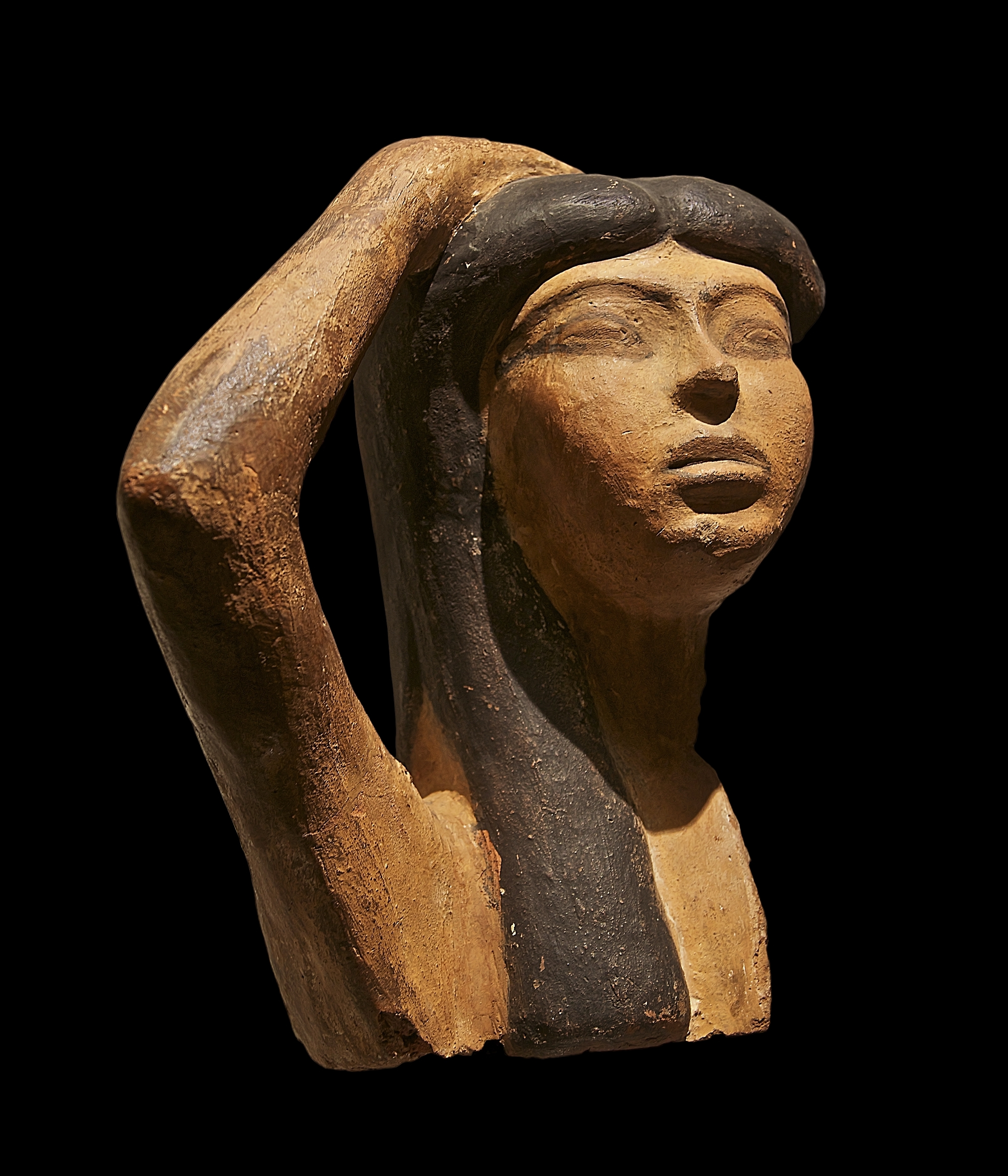|
Eulalia Of Mérida
Eulalia of Mérida ( Augusta Emerita in 292 - Augusta Emerita 10 December, 304) was a young Roman Christian martyred in Augusta Emerita, the capital of Lusitania (modern Mérida, Spain), during the Persecution of Christians under Diocletian. Other views place her death at the time of Trajan Decius (AD 249–51). There is debate whether Saint Eulalia of Barcelona, whose story is similar, is the same person. Up till the proclamation of James, son of Zebedee, Eulalia was invoked as the protector of Christian troops in the Reconquista and was patron of the territories of Spain during their formation. Hagiography Eulalia was a devout Christian virgin, aged 12–14, whose mother sequestered her in the countryside in AD 304 because all citizens were required to avow faith in the Roman gods. Eulalia ran away to the law court of the governor Dacian at Emerita, professed herself a Christian, insulted the pagan gods and emperor Maximian, and challenged the authorities to martyr her. Th ... [...More Info...] [...Related Items...] OR: [Wikipedia] [Google] [Baidu] |
Saint
In Christianity, Christian belief, a saint is a person who is recognized as having an exceptional degree of sanctification in Christianity, holiness, imitation of God, likeness, or closeness to God in Christianity, God. However, the use of the term ''saint'' depends on the context and Christian denomination, denomination. In Anglican Communion, Anglican, Oriental Orthodox, and Lutheranism, Lutheran doctrine, all of their faithful deceased in Heaven are considered to be saints, but a selected few are considered worthy of greater honor or emulation. Official Ecclesiastical polity, ecclesiastical recognition, and veneration, is conferred on some denominational saints through the process of canonization in the Catholic Church or glorification in the Eastern Orthodox Church after their approval. In many Protestant denominations, and following from Pauline usage, ''saint'' refers broadly to any holy Christian, without special recognition or selection. While the English word ''saint'' ... [...More Info...] [...Related Items...] OR: [Wikipedia] [Google] [Baidu] |
Trajan Decius
Gaius Messius Quintus Trajanus Decius ( 201June 251), known as Trajan Decius or simply Decius (), was Roman emperor from 249 to 251. A distinguished politician during the reign of Philip the Arab, Decius was proclaimed emperor by his troops after putting down a rebellion in Moesia. In 249, he defeated and killed Philip near Verona and was recognized as emperor by the Senate afterwards. During his reign, he attempted to strengthen the Roman state and its religion, leading to the Decian persecution, where a number of prominent Christians (including Pope Fabian) were put to death. In the last year of his reign, Decius co-ruled with his son Herennius Etruscus, until they were both killed by the Goths in the Battle of Abritus. Early life and rise to power Trajanus Decius was born Gaius Messius Quintus Decius Valerinus at Budalia, Illyricum, near Sirmium in Pannonia Inferior.Lesley Adkins, Rot A. Adkins (2004). Handbook to life in ancient Rome'' Infobase. p. 28 Decius was ... [...More Info...] [...Related Items...] OR: [Wikipedia] [Google] [Baidu] |
Miracle
A miracle is an event that is inexplicable by natural or scientific lawsOne dictionary define"Miracle"as: "A surprising and welcome event that is not explicable by natural or scientific laws and is therefore considered to be the work of a divine agency." and accordingly gets attributed to some supernatural or praeternatural cause. Various religions often attribute a phenomenon characterized as miraculous to the actions of a supernatural being, (especially) a deity, a miracle worker, a saint, or a religious leader. Informally, English-speakers often use the word ''miracle'' to characterise any beneficial event that is statistically unlikely but not contrary to the laws of nature, such as surviving a natural disaster, or simply a "wonderful" occurrence, regardless of likelihood (e.g. "the miracle of childbirth"). Some coincidences may be seen as miracles. A true miracle would, by definition, be a non-natural phenomenon, leading many writers to dismiss miracles as physically i ... [...More Info...] [...Related Items...] OR: [Wikipedia] [Google] [Baidu] |
Venus (mythology)
Venus (; ) is a Roman goddess whose functions encompass love, beauty, desire, sex, fertility, prosperity, and victory. In Roman mythology, she was the ancestor of the Roman people through her son, Aeneas, who survived the fall of Troy and fled to Italy. Julius Caesar claimed her as his ancestor. Venus was central to many religious festivals, and was revered in Roman religion under numerous cult titles. The Romans adapted the myths and iconography of her Greek counterpart Aphrodite for Roman art and Latin literature. In the later classical tradition of the West, Venus became one of the most widely referenced deities of Greco-Roman mythology as the embodiment of love and sexuality. As such, she is usually depicted nude. Etymology The Latin theonym and the common noun ('love, charm') stem from a Proto-Italic form reconstructed as ''*wenos-'' ('desire'), itself from Proto-Indo-European (PIE) ' ('desire'; cf. Messapic , Old Indic 'desire'). Derivatives include ''venust ... [...More Info...] [...Related Items...] OR: [Wikipedia] [Google] [Baidu] |
Apollo
Apollo is one of the Twelve Olympians, Olympian deities in Ancient Greek religion, ancient Greek and Ancient Roman religion, Roman religion and Greek mythology, Greek and Roman mythology. Apollo has been recognized as a god of archery, music and dance, truth and prophecy, healing and diseases, the Sun and light, poetry, and more. One of the most important and complex of the Greek gods, he is the son of Zeus and Leto, and the twin brother of Artemis, goddess of the hunt. He is considered to be the most beautiful god and is represented as the ideal of the ''kouros'' (ephebe, or a beardless, athletic youth). Apollo is known in Greek-influenced Etruscan mythology as ''Apulu''. As the patron deity of Delphi (''Apollo Pythios''), Apollo is an oracular god—the prophetic deity of the Pythia, Delphic Oracle and also the deity of ritual purification. His oracles were often consulted for guidance in various matters. He was in general seen as the god who affords help and wards off e ... [...More Info...] [...Related Items...] OR: [Wikipedia] [Google] [Baidu] |
Isis
Isis was a major goddess in ancient Egyptian religion whose worship spread throughout the Greco-Roman world. Isis was first mentioned in the Old Kingdom () as one of the main characters of the Osiris myth, in which she resurrects her slain brother and husband, the divine king Osiris, and produces and protects his heir, Horus. She was believed to help the dead enter the afterlife as she had helped Osiris, and she was considered the divine mother of the pharaoh, who was likened to Horus. Her maternal aid was invoked in healing spells to benefit ordinary people. Originally, she played a limited role in royal rituals and temple rites, although she was more prominent in funerary practices and magical texts. She was usually portrayed in art as a human woman wearing a throne-like hieroglyph on her head. During the New Kingdom (), as she took on traits that originally belonged to Hathor, the preeminent goddess of earlier times, Isis was portrayed wearing Hathor's headdress: a ... [...More Info...] [...Related Items...] OR: [Wikipedia] [Google] [Baidu] |
Peristephanon
Aurelius Prudentius Clemens () was a Roman Christian poet, born in the Roman province of Tarraconensis (now Northern Spain) in 348.H. J. Rose, ''A Handbook of Classical Literature'' (1967) p. 508 He probably died in the Iberian Peninsula some time after 405, possibly around 413. The place of his birth is uncertain, but it may have been Caesaraugusta (Saragossa), Tarraco (Tarragona), or Calagurris (Calahorra). Life Prudentius practiced law with some success, and was twice provincial governor, perhaps in his native country, before the emperor Theodosius I summoned him to court. Towards the end of his life (possibly around 392) Prudentius retired from public life to become an ascetic, fasting until evening and abstaining entirely from animal food; and writing poems, hymns, and controversial works in defence of Christianity. Prudentius later collected the Christian poems written during this period and added a preface, which he himself dated 405. Poetry The poetry of Prudentius is inf ... [...More Info...] [...Related Items...] OR: [Wikipedia] [Google] [Baidu] |
Prudentius
Aurelius Prudentius Clemens () was a Roman Christian poet, born in the Roman province of Tarraconensis (now Northern Spain) in 348.H. J. Rose, ''A Handbook of Classical Literature'' (1967) p. 508 He probably died in the Iberian Peninsula some time after 405, possibly around 413. The place of his birth is uncertain, but it may have been Caesaraugusta ( Saragossa), Tarraco ( Tarragona), or Calagurris ( Calahorra). Life Prudentius practiced law with some success, and was twice provincial governor, perhaps in his native country, before the emperor Theodosius I summoned him to court. Towards the end of his life (possibly around 392) Prudentius retired from public life to become an ascetic, fasting until evening and abstaining entirely from animal food; and writing poems, hymns, and controversial works in defence of Christianity. Prudentius later collected the Christian poems written during this period and added a preface, which he himself dated 405. Poetry The poetry of Prudentius ... [...More Info...] [...Related Items...] OR: [Wikipedia] [Google] [Baidu] |
Roman Gods
The Roman deities most widely known today are those the Romans identified with Greek counterparts, integrating Greek myths, iconography, and sometimes religious practices into Roman culture, including Latin literature, Roman art, and religious life as it was experienced throughout the Roman Empire. Many of the Romans' own gods remain obscure, known only by name and sometimes function, through inscriptions and texts that are often fragmentary. This is particularly true of those gods belonging to the archaic religion of the Romans dating back to the era of kings, the so-called "religion of Numa", which was perpetuated or revived over the centuries. Some archaic deities have Italic or Etruscan counterparts, as identified both by ancient sources and by modern scholars. Throughout the Empire, the deities of peoples in the provinces were given new theological interpretations in light of functions or attributes they shared with Roman deities. A survey of theological groups as ... [...More Info...] [...Related Items...] OR: [Wikipedia] [Google] [Baidu] |
Virgin (title)
The title Virgin (, ) is an honorific bestowed on female saints and Beatification, blesseds, primarily used in the Eastern Orthodox Church and the Catholic Church. Chastity is one of the seven virtues in Christian tradition, listed by Pope Gregory I at the end of the 6th century. In 1 Corinthians, Paul the Apostle states that the virgins and the unmarried women are "concerned about the Lord's affairs", and that their "aim is to be devoted to the Lord in both body and spirit". In 2 Corinthians 11:2, Paul alludes to the metaphor of the Church as Bride of Christ by addressing the congregation: "I have espoused you to one husband, that I may present you as a chaste virgin to Christ". In the theology of the Church Fathers, the prototype of the sacred virgin is Mary, the mother of Jesus, consecrated by the Holy Spirit at the Annunciation. Although not directly stated in the gospels, the perpetual virginity of Mary was widely upheld as a dogma by the Church Fathers from the 4th century. ... [...More Info...] [...Related Items...] OR: [Wikipedia] [Google] [Baidu] |
John William Waterhouse - Saint Eulalia - 1885
John is a common English name and surname: * John (given name) * John (surname) John may also refer to: New Testament Works * Gospel of John, a title often shortened to John * First Epistle of John, often shortened to 1 John * Second Epistle of John, often shortened to 2 John * Third Epistle of John, often shortened to 3 John People * John the Baptist (died ), regarded as a prophet and the forerunner of Jesus Christ * John the Apostle (died ), one of the twelve apostles of Jesus Christ * John the Evangelist, assigned author of the Fourth Gospel, once identified with the Apostle * John of Patmos, also known as John the Divine or John the Revelator, the author of the Book of Revelation, once identified with the Apostle * John the Presbyter, a figure either identified with or distinguished from the Apostle, the Evangelist and John of Patmos Other people with the given name Religious figures * John, father of Andrew the Apostle and Saint Peter * Pope John (disambigu ... [...More Info...] [...Related Items...] OR: [Wikipedia] [Google] [Baidu] |
Spain
Spain, or the Kingdom of Spain, is a country in Southern Europe, Southern and Western Europe with territories in North Africa. Featuring the Punta de Tarifa, southernmost point of continental Europe, it is the largest country in Southern Europe and the fourth-most populous European Union member state. Spanning across the majority of the Iberian Peninsula, its territory also includes the Canary Islands, in the Eastern Atlantic Ocean, the Balearic Islands, in the Western Mediterranean Sea, and the Autonomous communities of Spain#Autonomous cities, autonomous cities of Ceuta and Melilla, in mainland Africa. Peninsular Spain is bordered to the north by France, Andorra, and the Bay of Biscay; to the east and south by the Mediterranean Sea and Gibraltar; and to the west by Portugal and the Atlantic Ocean. Spain's capital and List of largest cities in Spain, largest city is Madrid, and other major List of metropolitan areas in Spain, urban areas include Barcelona, Valencia, Seville, ... [...More Info...] [...Related Items...] OR: [Wikipedia] [Google] [Baidu] |








